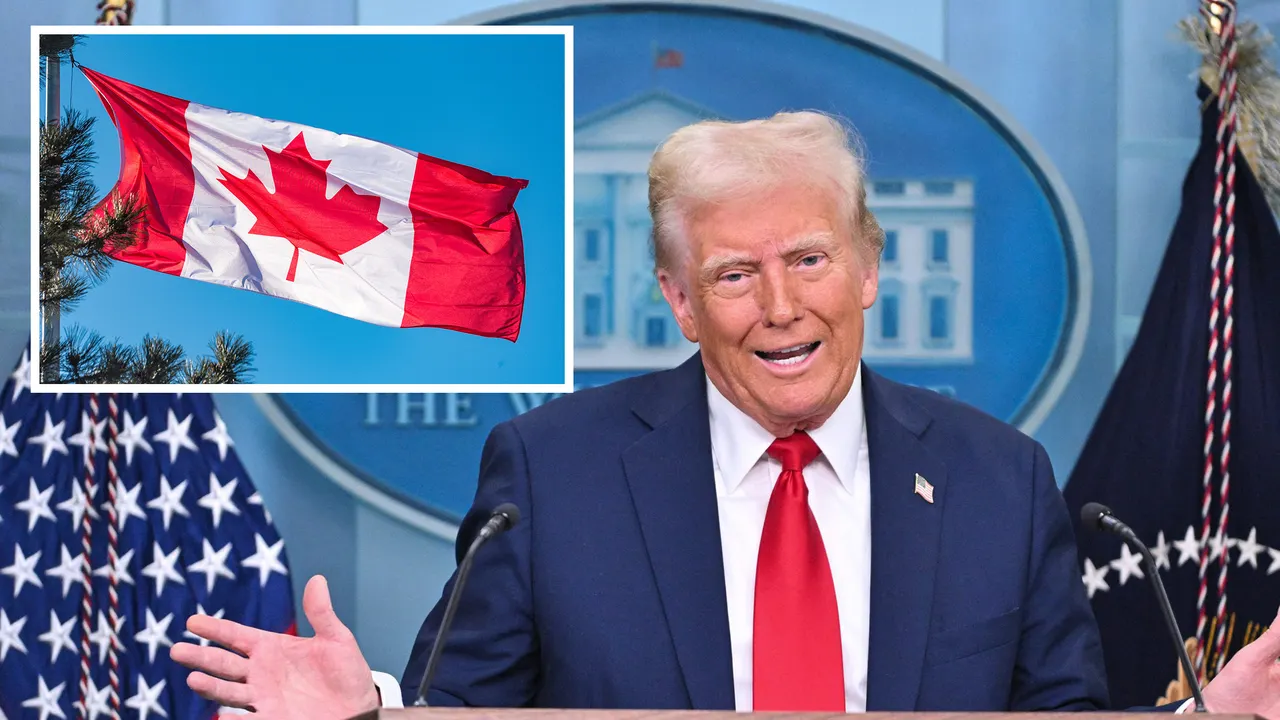Canada
Trump Raises the Stakes on Canada Trade Dispute While Carney Vactions

WASHINGTON, D.C. – July 13, 2025 – U.S. President Donald Trump has raised pressure on Canada by threatening a 35% tariff on Canadian imports starting August 1, 2025. Trump delivered the warning in a letter to Canadian Prime Minister Mark Carney, which he also shared on his Truth Social account.
This move intensifies the ongoing trade clash between the two countries. Trump pointed to Canada’s approach to fentanyl, what he called unfair dairy tariffs, and trade deficits as reasons for the new action.
Trump’s letter accused Canada of striking back with its tariffs and not doing enough to stop fentanyl at the border. He wrote that if Canada acts to stop fentanyl, he might reconsider, but warned of even higher tariffs if Canada responds in kind.
However, U.S. Customs and Border Patrol reports show that just 0.1% of fentanyl seizures from 2022 to 2024 happened at the Canadian border. Most of the drug comes from Mexico, raising doubts about Trump’s statement.
Carney on Vacation During Trade Crisis
Prime Minister Mark Carney, who secured his election win in April 2025 by vowing to resist Trump’s trade tactics, is currently on a short holiday. Many Canadians have voiced frustration, expecting Carney to take a stronger stance.
By using a hockey metaphor during his campaign, Carney promised to stand up for Canada against what he called Trump’s push to “break” and “own” the country. His absence has now sparked criticism and fed the idea that he is struggling to respond.
Carney’s team has already made changes to ease tensions with the U.S., including dropping a plan for a Digital Services Tax on American tech companies after Trump called it an “attack” and threatened to walk away from trade talks.
Canada also agreed to spend C$1.3 billion on border measures and appointed a new official focused on fentanyl, though data shows Canada’s role in the fentanyl issue is quite small. Critics say these steps have not helped, as Trump’s threat of new tariffs shows.
Canada’s Dairy Policy Under Fire
Trump’s main complaint centres on Canada’s supply management system, which sets tariffs of up to 400% on U.S. dairy products that go over certain limits. Trump has often criticised these measures, saying they keep American farmers out of the Canadian market.
Canada’s dairy lobby stands firm, arguing the system supports local farmers and keeps prices stable for shoppers. Yet, the International Dairy Foods Association said in March that U.S. dairy exports rarely reach Canada’s quota, suggesting Trump’s criticism may be overstated.
Canada’s protection of its dairy sector fits into a wider pattern. In response to Trump’s earlier tariffs on Canadian steel, aluminium and cars, Canada imposed its tariffs on U.S. goods such as whiskey, sports equipment, and appliances. These actions have strained trade, but the two countries still do significant business, with $410 billion in Canadian goods shipped to the U.S. last year.
Trump’s insistence on linking fentanyl to tariffs has faced sharp pushback. Federal data and research, like the Manhattan Institute report, show that nearly all fentanyl reaching the U.S. comes from Mexico rather than Canada.
Even with new border security steps and the appointment of Kevin Brosseau as a “fentanyl czar,” Trump claims Canada is a key route for the drug. In response, Carney has said on X that Canada is making real progress in fighting fentanyl and remains committed to working with the U.S.
Canadian Views: Unease with Carney, Distrust of Trump
Many Canadians are unhappy with how Carney has handled the latest trade trouble. A recent survey by Merchant Growth found that 61% of small business owners feel Canada is already in recession, made worse by U.S. tariffs on steel, aluminium and cars.
Social media posts show disappointment, especially around Carney’s decision to drop the Digital Services Tax, which many believe has done little to calm Trump. Conservative leader Pierre Poilievre called the tariff threat an “unjustified attack on Canada’s economy,” adding to the sense that Carney has not lived up to his pledge to defend Canadian interests.
Trump also remains unpopular in Canada. A 2024 Pew Research Centre poll found that 79% of Canadians have an unfavourable opinion of the U.S. president, linked to his harsh trade moves and provocative comments, including talk about annexing Canada.
The latest tariff warning has deepened this feeling, with Nova Scotia Premier Tim Houston calling it “childish bullying.”
Carney has promised to keep working on a new trade deal before the August 1 deadline, highlighting efforts to build stronger ties with the EU and other partners to rely less on the U.S. Foreign Affairs Minister Anita Anand said she hopes an agreement is possible, even if the talks are tough. Trump’s unpredictable tactics and habit of changing course on tariffs make the outcome hard to predict.
With the deadline approaching, Canadian businesses and workers are bracing for possible hardship. Carney faces growing calls to secure the “fair deal” he promised during the campaign. For now, the Canada-U.S. trade conflict remains unsettled, and both leaders are under pressure to protect their countries’ interests.
Related Trump News:
Trump Threatens to Revoke Rosie O’Donnell’s U.S. Citizenship, Reigniting Decades-Long Feud

-

 Crime2 months ago
Crime2 months agoYouTuber Nick Shirley Exposes BILLIONS of Somali Fraud, Video Goes VIRAL
-

 China4 weeks ago
China4 weeks agoChina-Based Billionaire Singham Allegedly Funding America’s Radical Left
-

 Politics3 months ago
Politics3 months agoIlhan Omar’s Ties to Convicted Somali Fraudsters Raises Questions
-

 News3 months ago
News3 months agoWalz Tried to Dodges Blame Over $8 Billion Somali Fraud Scandal
-

 Crime3 months ago
Crime3 months agoSomali’s Accused of Bilking Millions From Maine’s Medicaid Program
-

 Crime3 months ago
Crime3 months agoMinnesota’s Billion Dollar Fraud Puts Omar and Walz Under the Microscope
-

 Politics2 months ago
Politics2 months agoIlhan Omar Faces Renewed Firestorm Over Resurfaced Video
-

 Business2 months ago
Business2 months agoTech Giant Oracle Abandons California After 43 Years






































